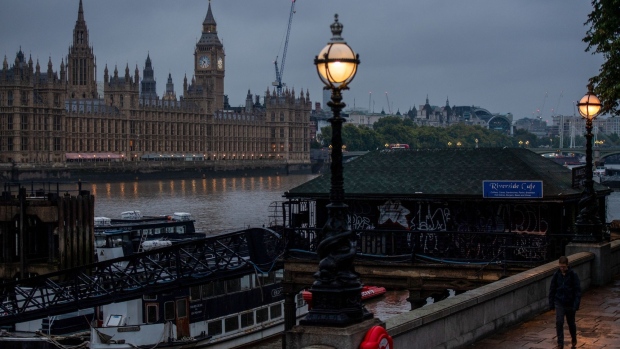Mar 9, 2023
Private Lenders Targeted in Debt-Relief Proposal by UK Lawmakers
, Bloomberg News

(Bloomberg) -- A group of UK lawmakers wants private creditors to be forced to participate in debt-relief programs for poor countries, and has proposed enshrining such a requirement in legislation.
The plan, put forward by the UK Parliament’s International Development Select Committee, follows an investigation by lawmakers appointed by the House of Commons. The government has two months to respond to the proposal, which was presented on Friday.
An estimated 90% of bonds owed by countries eligible for the G20’s debt-relief program are governed by English law. At the same time, poorer nations now owe more than ever to private lenders, with research showing that commercial banks and bondholders account for more debt repayments than multilateral institutions or other governments.
“Every dollar spent on servicing debt means a dollar less towards healthcare, the education of women and girls and tackling climate change,” said Sarah Champion, chair of the International Development Committee, in a statement. “It is time for a reset.”
The International Monetary Fund and the World Bank have both expressed support for such legislative steps. And last month, BlackRock Inc. and Standard Chartered Plc took part in closed-door talks co-led by the IMF focused on fixing bottlenecks that prevent quick sovereign debt restructuring.
“The committee recognizes that asking private lenders nicely simply doesn’t work,” Heidi Chow, executive director of Debt Justice, a nonprofit, said in a statement. “As most bond contracts eligible for the G20 debt relief scheme are governed by UK law, the government needs to introduce legislation that would compel private lenders to cancel debt for countries that need it.”
A key plank of the UK lawmaker proposal is rules that would limit banks domiciled in Britain from being able to sue poor nations unable to service their debt.
“The government must listen to this report and act by putting an end to irresponsible banks continuing to profiteer during a global debt crisis,” Dario Kenner, policy lead on debt at the Catholic Agency for Overseas Development, said in a statement.
Some of the biggest private creditors to the developing world include BlackRock, HSBC Holdings Plc, Goldman Sachs Group Inc., Legal & General Group Plc, JPMorgan Chase & Co. and UBS Group AG, through Eurobond programs with nations including Ghana, Kenya, Nigeria, Zambia and Senegal, CAFOD said, citing its own research.
The rise of private lending to poorer nations has led to an increase in debt-servicing costs and more complex debt restructurings. World Bank data indicate that the poorest countries now spend more on servicing their debt as a proportion of gross national income than at any point in the past three decades.
“Without sustained and effective intervention by the international community to tackle their debt distress, the development impacts of spiralling debt could have a catastrophic impact” on poor countries, the lawmakers said in a statement.
(Adds comment from Debt Justice in sixth paragraph.)
©2023 Bloomberg L.P.






